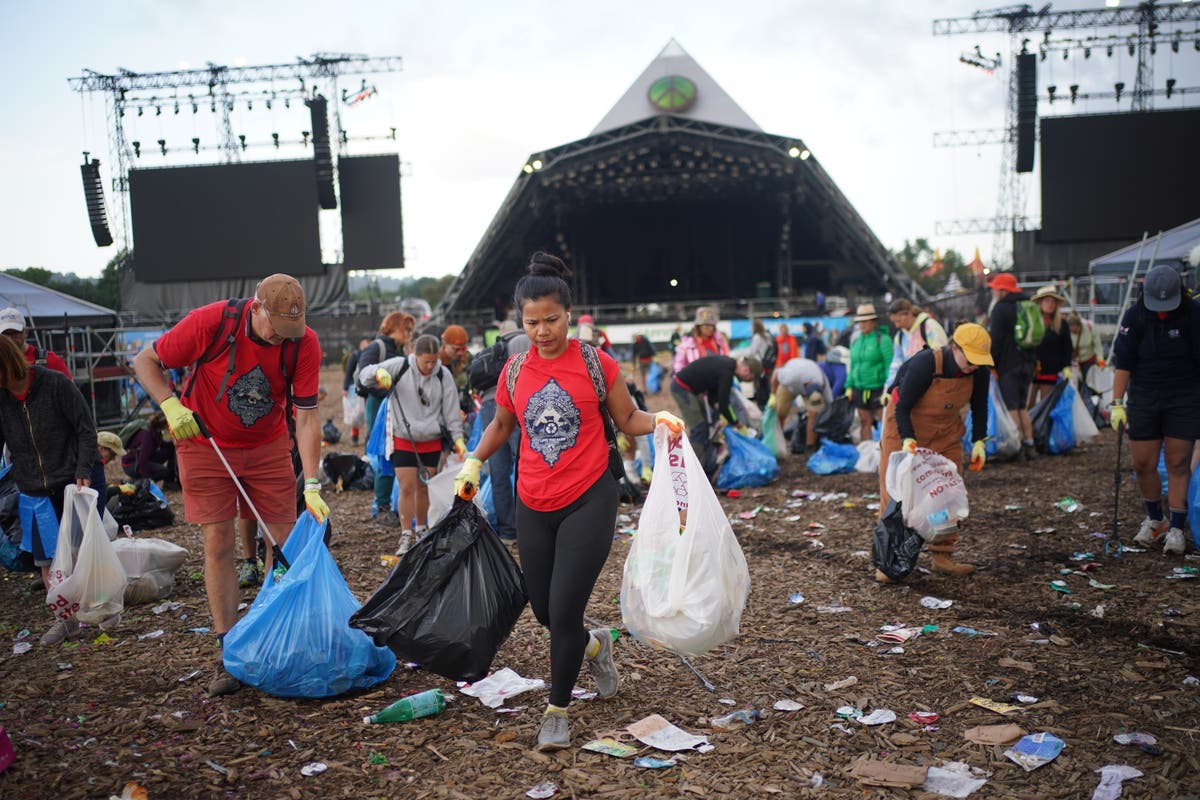Glastonbury‘s famous clean-up of Worthy Farm began almost as soon as Elton John closed the five-day festival on Sunday night (25 June), with a spectacular headline show on the Pyramid Stage.
Every year, hundreds of volunteers participate in a post-Glastonbury clean-up drive dedicated to ensuring that the working farm in Somerset is completely free of litter and debris left behind by campers.
Soon after the festival this year, the usual images of the site’s green fields strewn with litter began to appear online.
In an interview with Bristol Post, team leaders of the Pyramid clean-up, Kirstine and Rocky said that the grounds “look bad but when you look back [behind you] it’s really satisfying.”
“I came down this morning and thought ‘this doesn’t look bad’ considering there were about a quarter of a million people here,” Rocky said.
“A long time ago, it would have been way worse, when single-use plastics were allowed and the caterers sold everything in polystyrene.
“Even 10 years ago there would have been loads and loads of chairs left, and this year there will be fewer tents [left] than ever,” he added.
The volunteers said that they separate the waste as much as possible so that it can be properly composted and recycled.
(PA)
According to reports, around 1,000 litter pickers are making their way around the Glastonbury site on Monday morning (26 June) to help with the clean-up drive.
Enjoy unlimited access to 70 million ad-free songs and podcasts with Amazon Music
Sign up now for a 30-day free trial
Enjoy unlimited access to 70 million ad-free songs and podcasts with Amazon Music
Sign up now for a 30-day free trial
The litter left on the ground ranges from cups and cans to food boxes.
Despite the scale of the job, those working to clean up Worthy Farm hope to finish the job by Monday afternoon.
(PA)
Glastonbury has long upheld a mission to implement and encourage ways of protecting the environment, tackle waste and reduce its carbon footprint. In 2019, it banned the sale of plastic bottles, while only compostable or reusable plates, cutlery and drinking straws are permitted.
Around half of all waste created by Glastonbury Festival is reused or recycled, and the site is estimated to compost more food waste than the national average.
(PA)
Going one further, this year Glastonbury organisers asked guests to avoid bringing disposable vapes onto the festival site.
The addition to the guidance list of what not to bring to the campsite said of disposable vapes: “They pollute the environment and can be hazardous at waste centres.”
Follow The Independent’s Glastonbury live blog here.
